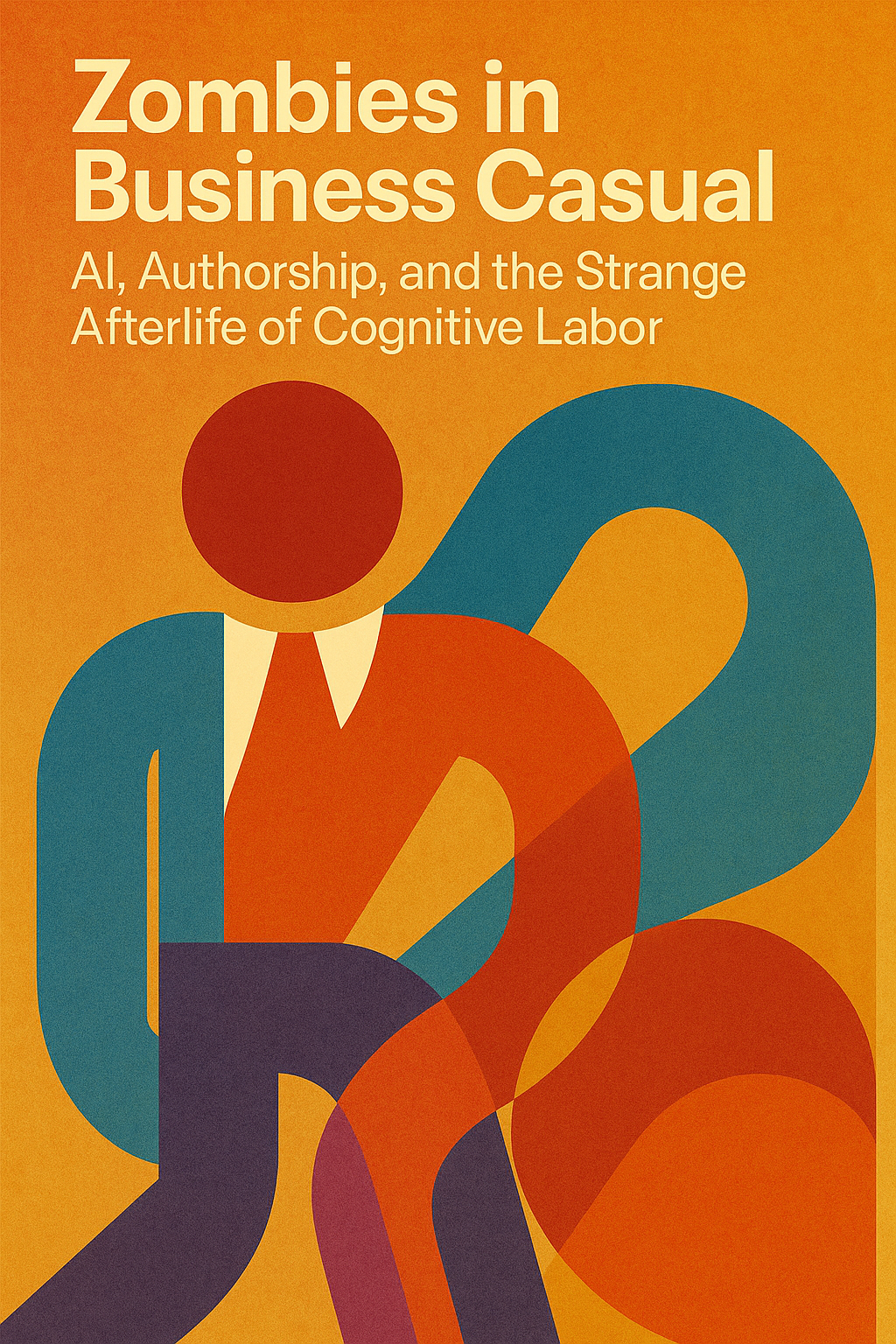Zombies in Business Casual: AI, Authorship, and the Strange Afterlife of Cognitive Labor

By. J. Owen Matson
As machines absorb tasks once reserved for the caffeine-soaked cortex—composing, summarizing, editorializing, opining, rebutting, and even performing the moral theater of critique itself—cognitive labor begins to take on the ontological consistency of dry ice in a haunted theatre. It still smokes, but no one’s quite sure what’s burning.
The conveyor belt, however, keeps running. Memos assemble, as forms populate and compliance trainings pass with full marks (and a suspicious lack of typos). The system doesn’t reject your labor. It just sort of forgets you were ever there.
And so you continue to function inside the apparatus. You revise stuff, respond to things, even interject morsels of originality in all the stuff and things. But these aren’t discrete acts of labor anymore. They’re tonal inflections in a much larger orchestration—often indistinguishable from the system’s own anticipatory rhythm, which ingests your input with the bland grace of a hotel concierge trained to nod emphatically while erasing everything you just said.
You participate without locating the moment of contribution. You feel present, yet your presence is processed, rerouted, latency-bound. Cognition becomes infrastructural, no longer centered in the human but dispersed across interfaces that mimic dialogue, simulate reflection, and metabolize interpretation as throughput.
Yet, for all the novelty attributed to AI, this haunted ontology didn’t arrive with ChatGPT. Marx saw it coming—though sadly, he never coined the phrase “zombie labor theory of value” (which really would have slapped). In the Grundrisse, he sketches the “general intellect”—accumulated knowledge, technology,, and cultural abstraction upon which production increasingly depends. Machines begin to enact cognitive labor, while human labor shifts from value-creation to maintaining the illusion that it still does.
For Marxists like Negri, this is a necessary illusion. Capitalism needs labor to appear central, because wages, surplus, and exploitation all depend on that fiction. But once machines become the real producers—running models, managing logistics, drafting emails with eerie empathy—it becomes harder to pretend.
This is how the Autonomists—those spicy post-’68 Marxists like Tronti, Negri, and Virno—saw emergent capitalist dynamics well before AI. They argued that capital responds to labor, not the other way around. But babor doesn’t vanish. Instead, it becomes a kind of simulation, a necessary costume party to keep the wage relation intact. Work becomes the production of social life itself.
Today’s AI systems sit atop this contradiction like cats on a warm laptop—graceful, opaque, slightly condescending.
The intellectual labor of the moment involves reasserting agency from inside these complex infrastructures—where authorship shuffles forward like a zombie in business casual, technically still moving, but mostly animated by systems that don’t even need to bite you to turn you into one of them.